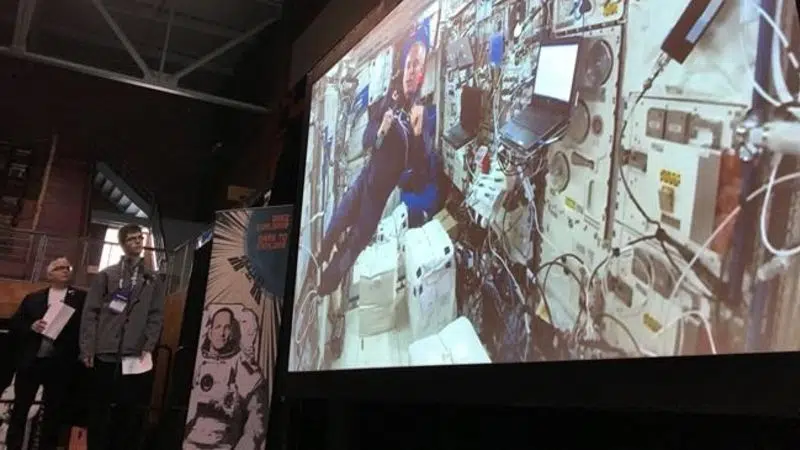
Canadian astronaut David Saint-Jacques announces winners of science contest
FREDERICTON — Canadian astronaut David Saint-Jacques took time from his busy schedule on the International Space Station Wednesday to encourage young students to pursue science — telling them they are the future.
Hundreds of students from across Canada are gathered in Fredericton this week for the 2019 Canada-Wide Science Fair at the University of New Brunswick.
Saint-Jacques spoke to the students via a live video link from the space station orbiting 400 kilometres above earth.
